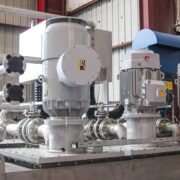There are a few key differences between forex and futures trading when it comes to trading. These differences can significantly impact your trading strategy and your investments’ overall success.
Table of Contents
Key differences between forex and futures
Here’s a look at the key differences between forex and futures trading:
Leverage
Forex trading generally offers higher leverage than futures trading. It means that you can control a more prominent position with less capital. However, this also means that you’re taking on more risk. Be sure to carefully consider your risk tolerance before deciding how much leverage to use.
Margin requirements
Futures contracts typically have higher margin requirements than forex trades. You’ll need to put down more money to trade a futures contract than you would to trade a forex pair. Again, carefully consider your risk tolerance before deciding how much margin to use.
Trading hours
The forex market is open 24 hours, five days a week. Futures markets are only open for specific periods each day. It can affect your trading strategy, as you may need to adjust your trading hours to match the hours that the futures market is open.
Contract sizes
Futures contracts are typically much more significant than forex lots. It means that each point move in the futures market will have a more significant impact on your account than each pip move in the forex market. Always be sure to take this into account when sizing your positions.
Settlement
Forex trades are typically settled two days after the trade is made. On the other hand, futures contracts are usually settled at the end of the contract period. It can affect your trading strategy, as you’ll need to account for the different settlement dates when making your plans.
Hedging
Another key difference is that futures contracts are often used to hedge, while forex trading is primarily speculative. In other words, when you trade futures, you may be doing so to offset the risk of price movements in the underlying asset. For example, a farmer may sell wheat futures to hedge against the risk of falling wheat prices. On the other hand, most forex traders are simply speculating on the movements of currency pairs.
Different exchanges
Finally, it is worth noting that Dubai has several different exchanges that offer futures and forex trading. The most popular exchange for futures trading in Dubai is the Dubai Gold and Commodities Exchange (DGCX). The DGCX offers various contracts for energy, metals, and agricultural commodities. The Dubai Financial Market (DFM) is the most popular exchange for forex trading. However, several OTC brokers offer forex trading in Dubai.
Risks associated with trading forex and futures in Dubai
When it comes to trading forex and futures, several risks are involved. These include the potential for loss, fraud, and the lack of regulation.
Losses can occur when trading forex and futures due to the volatile nature of these markets. Prices can fluctuate rapidly and unexpectedly, which can lead to losses.
Fraud is also a risk when trading forex and futures. There have been instances of fraudulent brokers offering fake deals or platforms that do not exist. It is essential to research any broker before investing money with them.
The lack of regulation in Dubai also poses a risk when trading forex and futures. There is no central body or regulator overseeing these markets, so there is no one to protect investors if things go wrong.
Finally
These are just a few key differences between forex and futures trading. Consider all of these factors before deciding which market is suitable for you. We recommend using a reputable and reliable Saxo broker Dubai and trading on their demo account before investing real money if you are new to trading.



















Comments